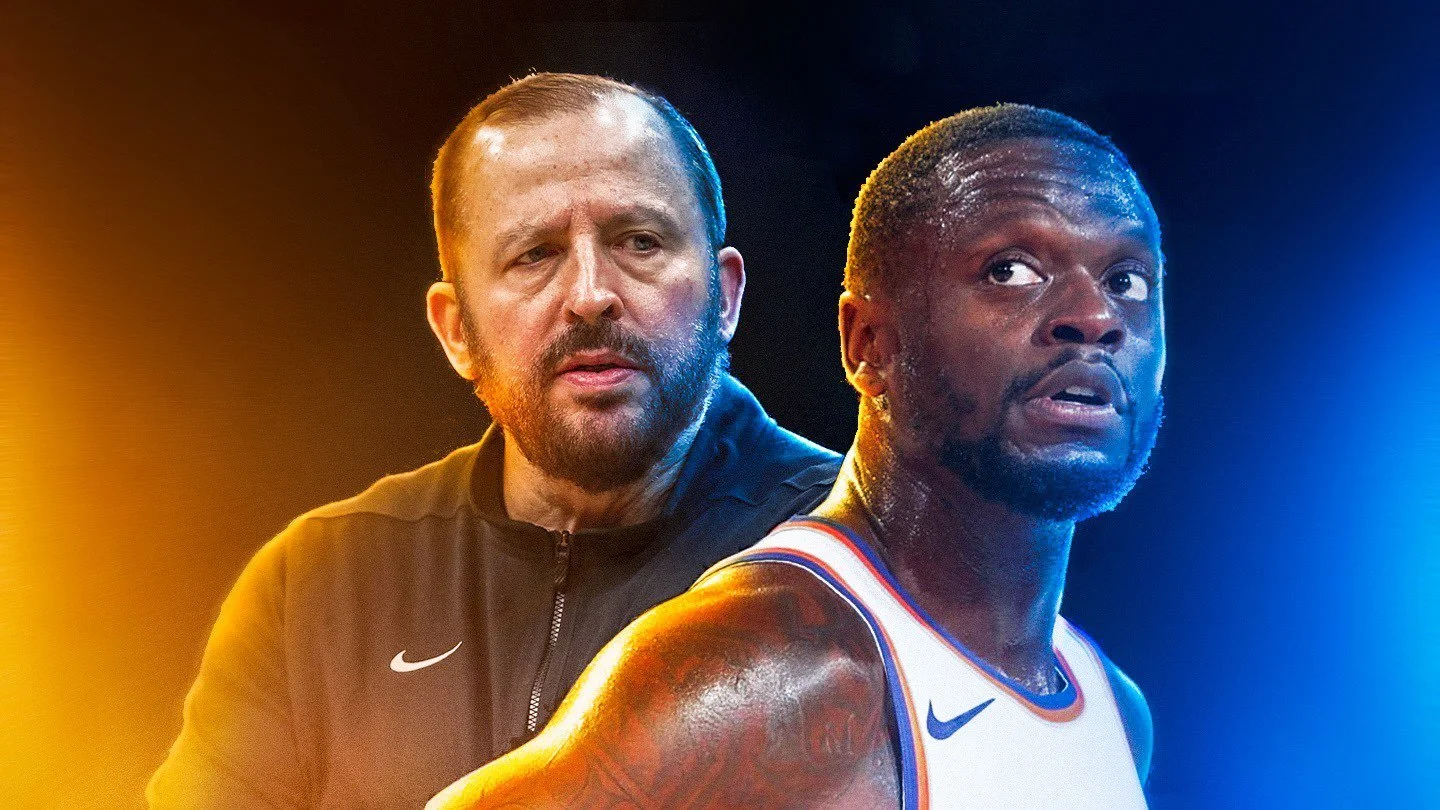Julius Randle, Tom Thibodeau and what seems vs. what is
One of the Knicks’ most time-honored traditions is following up a great season with a terrible one. Could Tom Thibodeau and Julius Randle be the key to bucking the trend for the Knicks this year?
Corey Brewer was an NBA lottery pick. He played 819 games over 13 seasons for eight teams, winning a title with the 2011 Dallas Mavericks. Impressive numbers, all. But not his most impressive.
Over 819 career games, Brewer scored under 30 points 818 times. The other game, in 2014, he went off for 51. Nobody saw that coming. In his prior 77 games that season, he scored 20-plus a handful of times, a rate repeated over his career. All of which is to say Brewer was never anybody’s idea of a big-time scorer. Yet how often do we see what we expect, rather than what is?
In a lot of ways, 2023-24 is set up for the Knicks to succeed. Of course, that depends on how you define “success.” Often it boils down to where you’re coming from. And where the Knicks hail from, success is often less tangible than tangential.
Pick almost any good year the Knicks have had over the last 50 and it was likely followed by immediate disappointment. After winning it all in 1973, 1974 saw them fall in the East finals; over the next eight seasons they won one playoff series. The 1981 Knicks won 50 games and reached the playoffs, then missed the postseason a year later while falling to 33 wins. In 1983 they bounced back to a winning record and won a best-of-three opening round before being swept by the eventual champion 76ers; a year later they again reached the second round, winning a draining five-game series over Detroit before falling in seven to the eventual champion Celtics. Then Bill Cartwright missed the entire 1985 season with a foot injury, a season bookmarked by the obliteration of Bernard King’s knee.
In 1989, the Knicks were a 50-win team that came close to the ECF, then dropped to 45 and 39 wins the next few years. In 1994 they reached Game 7 of the Finals; a year later they won eight fewer playoff games. 1997 ended in brutal, litigious fashion, but the Knicks had won 57 games and were a real threat to the Bulls. Early the following season, Ewing shattered his wrist; he was never the same. In 1999 they made a miracle run to the Finals, a year later they were eliminated at home in the ECF, the year after that they got knocked out in the first round. In 2004 they made the playoffs after a two-year absence, got swept and didn’t win a series for another nine years, until 2013. Before 2014 began the organization fired the general manager after the owner pushed through a ridiculous deal for Andrea Bargnani.
Two years ago, the familiar disappointment: the Knicks followed an invigorating first year under Tom Thibodeau with a laborious sequel. Last year was unquestionably good. Does that mean this year will invariably suck? Especially given the years of evidence that both Thibodeau and Julius Randle struggle to string successes together?
Maybe not.
It’s important to re-state just how much progress the Knicks would prove this year simply by standing in place. In three seasons under Thibs, they’ve made the playoffs twice and won a round. In the 20 seasons prior, they made the playoffs five times and won one round. If you’re a Knicks fan who’s read this far, you probably already knew all that. Maybe you didn’t know what’s coming next.
In five years under Thibs, the Bulls made the playoffs all five times, winning four rounds. If you take the eight years since Chicago fired him and the 12 before Thibodeau, all the way back to when Phil Jackson “left,” that’s 20 seasons. The Bulls missed the postseason 13 times; in seven playoff appearances, they’ve won one round. Today’s Bulls are nobody’s idea of a role model.
In two full seasons under Thibs, the Timberwolves made the playoffs once, failing to advance. In the four years since canning Thibodeau, Minnesota has missed two postseasons, made two and failed to win a round. In the previous 27 years of their history, they missed the playoffs 19 times. They’ve won two playoff series, ever, both in 2004. Today’s Wolves are nobody’s idea of a role model.
Corey Brewer scoring 51 points in a game seems like an outlier. In an individual sense, it is. But step back and view it as part of a larger tapestry, and the outlier’s truth confirms the rule rather than the exception: it’s uncommon, difficult and exceedingly rare for greatness to exist, much less persist. There’s limits to how high we rise before gravity, entropy, whatever you wanna call it tugs, pulls, it down.
The rest of this piece can be found exclusively on our Patreon for patrons of the Spinning and Winning level and higher. We hope to see you there!


